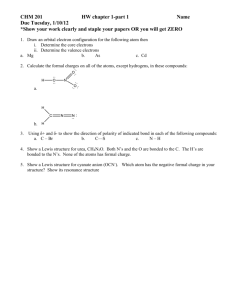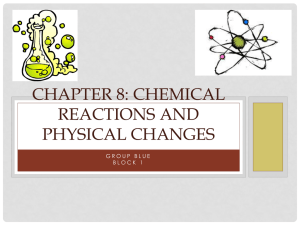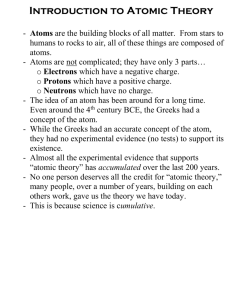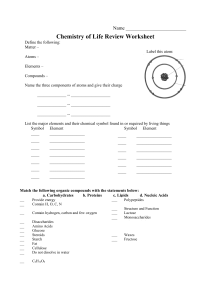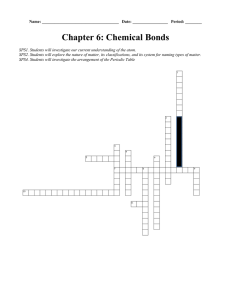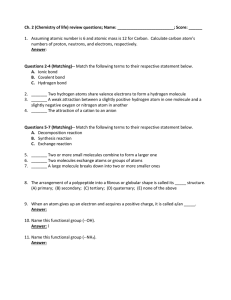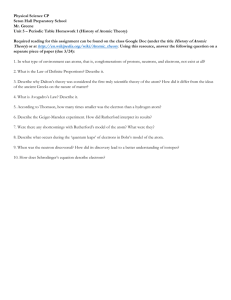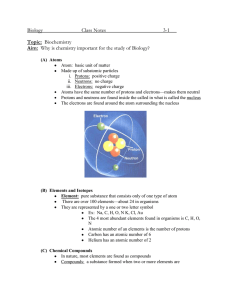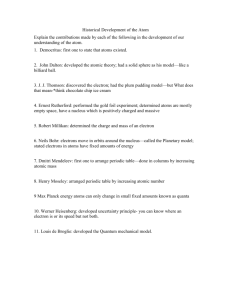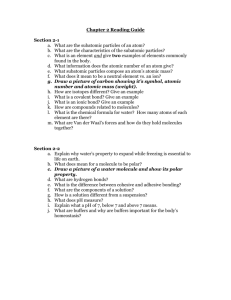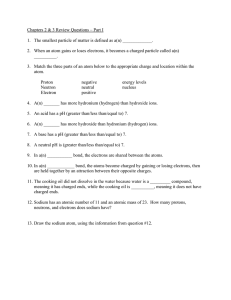Chapter 2: The Chemical Building Blocks of Life
advertisement
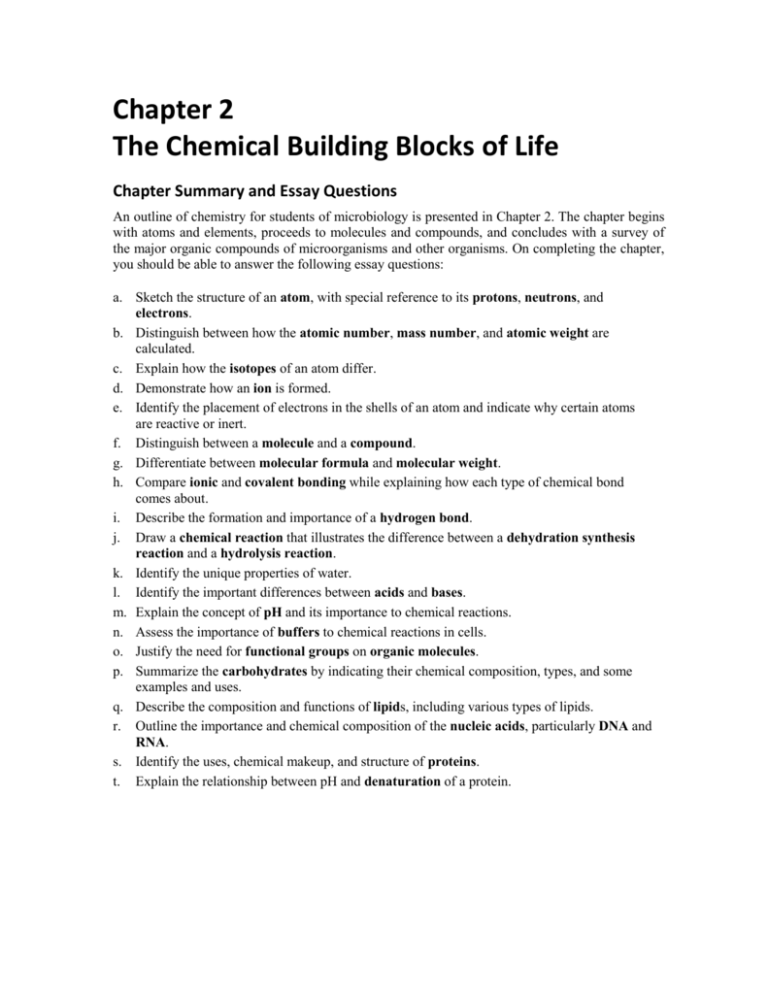
Chapter 2 The Chemical Building Blocks of Life Chapter Summary and Essay Questions An outline of chemistry for students of microbiology is presented in Chapter 2. The chapter begins with atoms and elements, proceeds to molecules and compounds, and concludes with a survey of the major organic compounds of microorganisms and other organisms. On completing the chapter, you should be able to answer the following essay questions: a. Sketch the structure of an atom, with special reference to its protons, neutrons, and electrons. b. Distinguish between how the atomic number, mass number, and atomic weight are calculated. c. Explain how the isotopes of an atom differ. d. Demonstrate how an ion is formed. e. Identify the placement of electrons in the shells of an atom and indicate why certain atoms are reactive or inert. f. Distinguish between a molecule and a compound. g. Differentiate between molecular formula and molecular weight. h. Compare ionic and covalent bonding while explaining how each type of chemical bond comes about. i. Describe the formation and importance of a hydrogen bond. j. Draw a chemical reaction that illustrates the difference between a dehydration synthesis reaction and a hydrolysis reaction. k. Identify the unique properties of water. l. Identify the important differences between acids and bases. m. Explain the concept of pH and its importance to chemical reactions. n. Assess the importance of buffers to chemical reactions in cells. o. Justify the need for functional groups on organic molecules. p. Summarize the carbohydrates by indicating their chemical composition, types, and some examples and uses. q. Describe the composition and functions of lipids, including various types of lipids. r. Outline the importance and chemical composition of the nucleic acids, particularly DNA and RNA. s. Identify the uses, chemical makeup, and structure of proteins. t. Explain the relationship between pH and denaturation of a protein.
